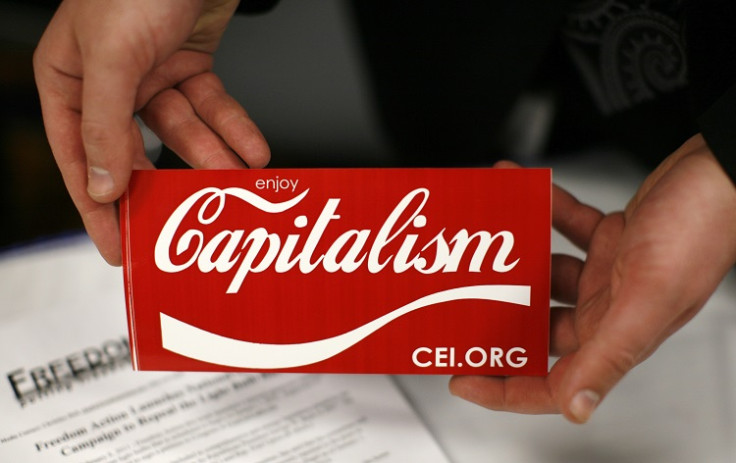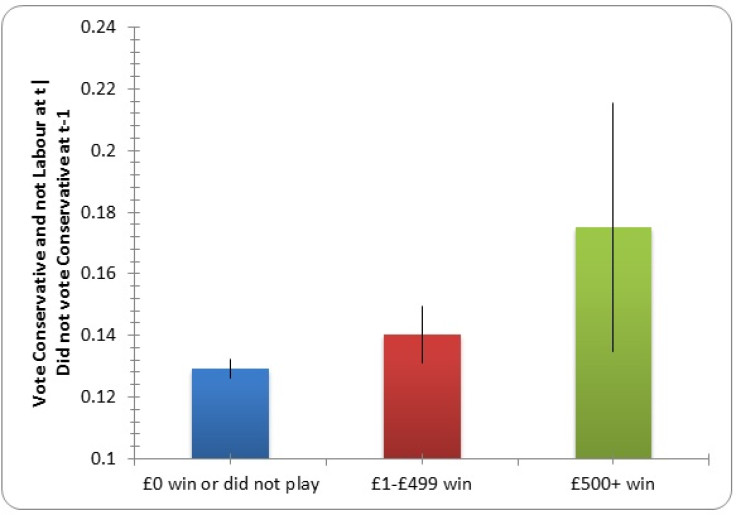Lottery Winners that Take Home More than £500 Likely to Vote Conservative

If a British person wins more than £500 in a lottery they are more likely to vote Conservative, according to a new a study that looked into the relationship between gambling and political attitudes.
The research paper by academics Nattavudh Powdthavee and Andrew J. Oswald was called, Does Money Make People Right-Wing and Inegalitarian? A Longitudinal Study of Lottery Winners.
"Among those people who have had a lottery win greater than £500 sterling (which at the time of writing is approximately $800), almost 45% of British individuals vote to the right, that is, support the Conservative party," the authors wrote.
Powdthavee and Oswald went on and said that comparing people before and after a lottery windfall in their study showed that winners tended to switch towards support for a right-wing political party and to become less egalitarian as they won more money.
This meant that the larger the win, the more people tilted to the right-side of the political spectrum.

Furthermore, they said that the relationship between gambling and voting was partly one of self-interest and the potential to become more conservative via gambling was strongest for men.
"Our findings are consistent with the view that voting is driven partly by human self-interest. Money apparently makes people more right-wing," they said.
The authors claimed that their study was original compared to other scholarship on the topic as they were able to observe people's political attitudes before and after events through lottery samples.
Although other studies have looked at the relationship between wealth and political attitudes and found a connection between them, previous methods were not as empirically sound the authors said.
The authors said that their study drew upon a nationally representative sample from the British population and their findings were in line with previous scholarly works that linked wealth to conservative attitudes.
© Copyright IBTimes 2024. All rights reserved.






